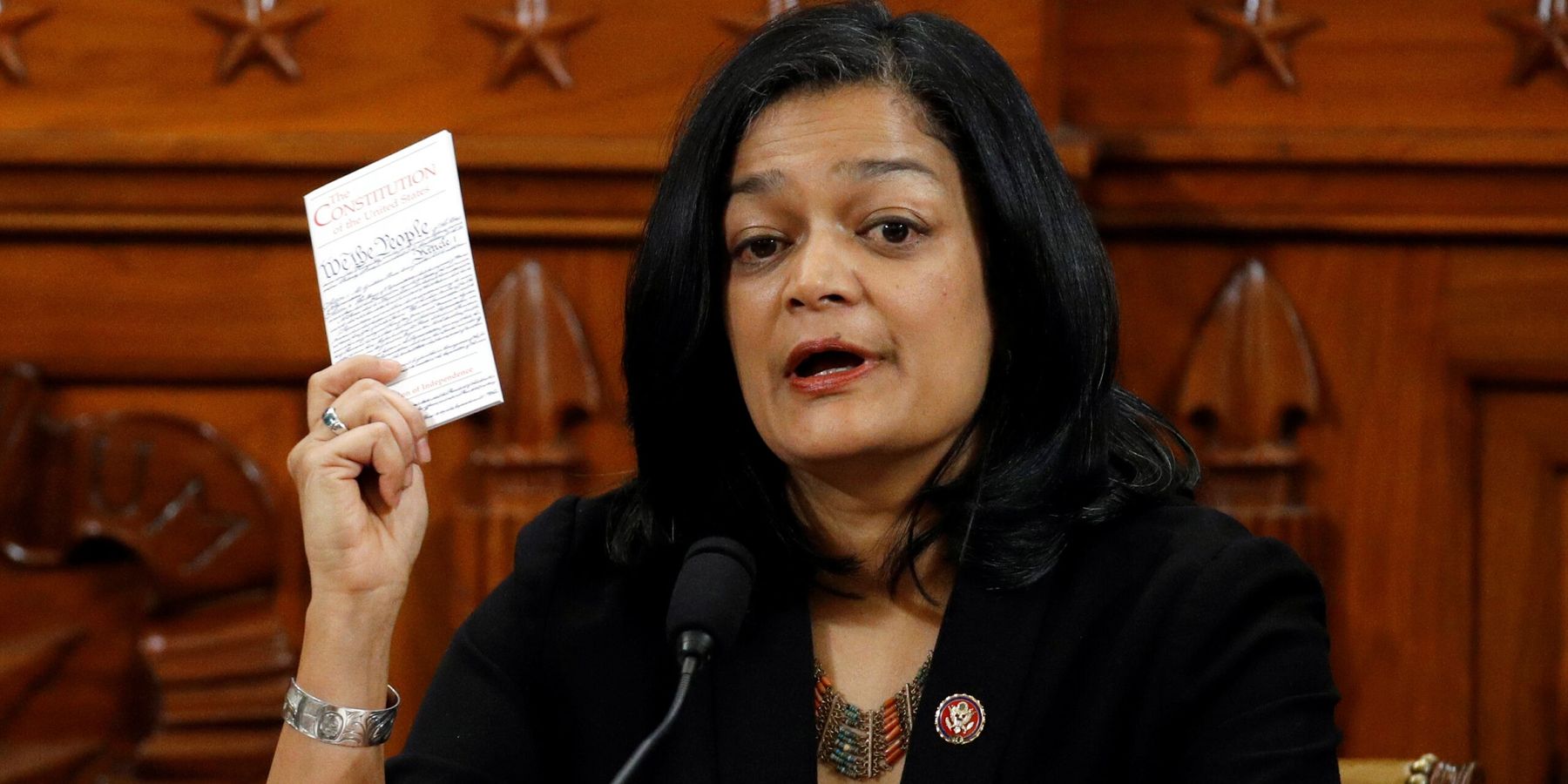A group of House Democrats is calling on the Trump administration to halt its unauthorized attacks on Yemen’s Houthis and present a legal justification for recent strikes on the rebel group.
In a letter to the White House, first reported by the Intercept, the group of more than 30 Democrats — led by Reps. Pramila Jayapal (D-Wash.), Ro Khanna (D-Calif.); and Val Hoyle, (D-Ore.) — argues that presidents must go through Congress for a declaration of war or adjacent authorization to wield military force.
“While we share concerns about maritime security in the Red Sea, we call on your Administration to immediately cease unauthorized use of military force and instead seek specific statutory authorization from Congress before involving the U.S. in an unconstitutional conflict in the Middle East, which risks endangering U.S. military personnel in the region and escalating into a regime-change war,” the letter states.
“Congress must have the opportunity to engage in a robust debate on the rationale for offensive force and vote on its merits before U.S. servicemembers are placed in harm’s way and additional taxpayer dollars are spent on yet another Middle East war,” the letter asserts. “No president has the constitutional authority to bypass Congress on matters of war.”
“How does the Administration claim self-defense, deterrence, or response to an imminent attack as a justification for strikes, given the President’s remarks that attacks ‘will get progressively worse,’ until the Houthis are ‘completely annihilated?’” the letter asks. “What steps, if any, are being taken to mitigate further civilian casualties?”
The letter also pushed the Trump administration to justify its response to “Signalgate,” where a government officials’ group chat on messaging app Signal, which outlined plans to strike Yemen, had included Atlantic editor Jeffrey Goldberg.
Today’s letter follows other lawmakers’ pushes for oversight regarding growing U.S. military involvement in Yemen. Previously, Sens. Rand Paul (R-Ky.) and Jeff Merkley (D-Ore.) teamed up across the political aisle in an April 1 letter, questioning the constitutionality of ongoing U.S. airstrikes in Yemen. Considering tenuous U.S.-Iran relations, they pondered whether such attacks could set the stage for further conflict with Iran.
“Congress should be briefed about the recent strikes against the Houthis and the total cost expected to be incurred by this campaign at the American taxpayer’s expense,” Paul and Merkley wrote. “The Administration must also explain to Congress and the American people its expected path forward given the failure of previous such efforts and statements from the Administration that the military campaign will continue and possibly expand to include military action against Iran.”
To date, recent U.S. military operations in Yemen have cost nearly $1 billion, all with limited impact on Houthi fighting capabilities.
















